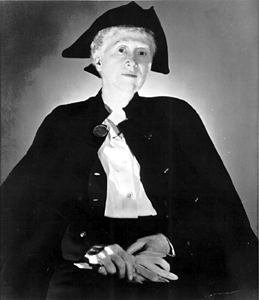
For those averse to alcohol or dead set against the evils of demon drink, exit now or forever zip closed your fly!
Ruminations on literature, art, politics, music, photography, design (architecture and landscape), wine and spirits &c.

For those averse to alcohol or dead set against the evils of demon drink, exit now or forever zip closed your fly!

Like most ordinary citizens, I am not a follower of judicial careers, and can't with any authority weigh in on the reputation or qualifications of any sitting judicial appointees, at any level of the Federal Bench.


Tim Lincecum's star has risen as fast as any major league prospect in recent memory. Acquired by the San Francisco Giants in the first round of the 2006 Amateur Draft, after having been drafted twice before by major league teams (before he was ready to become professional)-- from the start, his potential and promise has signified greatness all the way.

When I was a boy, in the 6th grade, yo-yo's were popular. At least half my classmates had them, and so the school held a yo-yo performance contest. It was won, perhaps unexpectedly, by a girl, whose name (I'm sure she wouldn't mind my using it here) was Beverly Smith. Beverly was a tall, 'dirty'-blonde girl, with some freckles, thin, and not particularly attractive, but pretty smart, and savvy. I don't know why she was good at yo-yo-ing, but she was the best. Maybe, like everything else, it was about practice.
Watten's Progress, as an example of his mature work, casts a shadow of negation across the field of its probable uses. Here, finally, we get a work emptied of body, personality, identity, emotion, lyrical expression and coherent philosophical organization.
The stanzaic form is without precedent; that is, I know of no other poem written in this style:

One aspect of Silliman's work which has bothered me for quite a while, is its abandonment of traditional lyricism, in favor of a prosaic style (basically prose without a musical setting). Ketjak [1978], from my perspective, seems to have been the initial part of this phase. The Alphabet, effectively a collected poems since the late-1970's, is a remarkably homogeneous mass of work, all of it made out of the same material, presented with minor formal variants.

Of the two works, it might be easier to talk about Ketjak first, since it is clearly more accessible (in the sense of being apprehensible to the general reader) than is Progress.

Marianne Moore's place in the pantheon of Modernist poets is assured. She belongs in the company of Eliot, Williams, Pound, Stevens, Yeats on the strength of her revolutionary, stylistically daring, and exquisitely intelligent verse. And yet her work is strikingly different from all her male counterparts, who came to prominence after the First World War, so much so that it may almost seem that she occupies a position unique to herself.

In the British Isles, there has been a long tradition of legitimate stage acting, which is unrivaled throughout the world. When cinema developed momentum in the 1920's--and with the arrival of the Talkies in 1927--film began to rival the stage as a venue for acting talent. The two media may have seemed quite different modes in those early days, but eventually their qualities became better defined, and their distinctions clearer. Sound is thought to have "ruined" the careers of certain actors, whose voices didn't match their silent acting abilities. "Old fashioned" acting methods--common to stage acting up to this point--were thrown into sharp relief by cinema. The degree to which the cinema actually changed the legitimate stage--particularly acting technique--is a story for another time. My point here is to suggest that certain actors/actresses were able to bridge the gulf between stage and film, to have, in effect, dual careers. This has become very much the exception since the Second World War, with film actors/actresses rarely maintaining separate skills (live and recorded).
